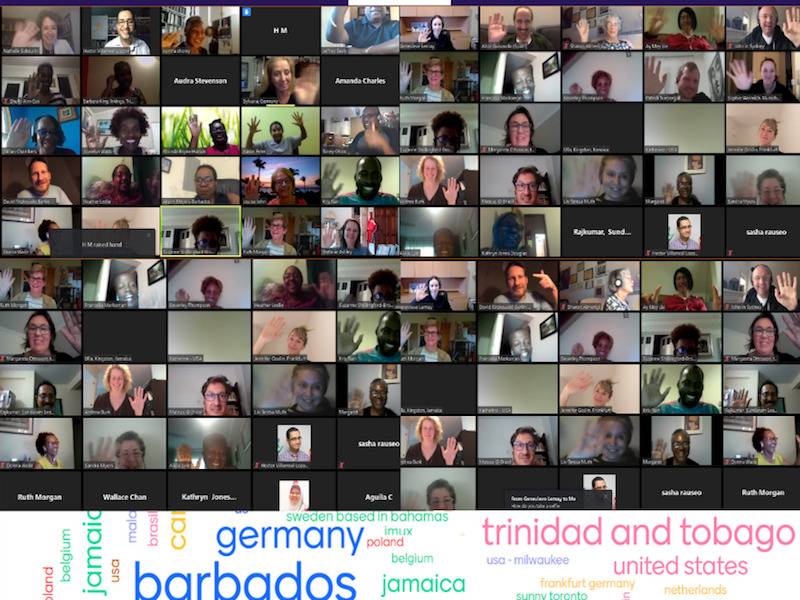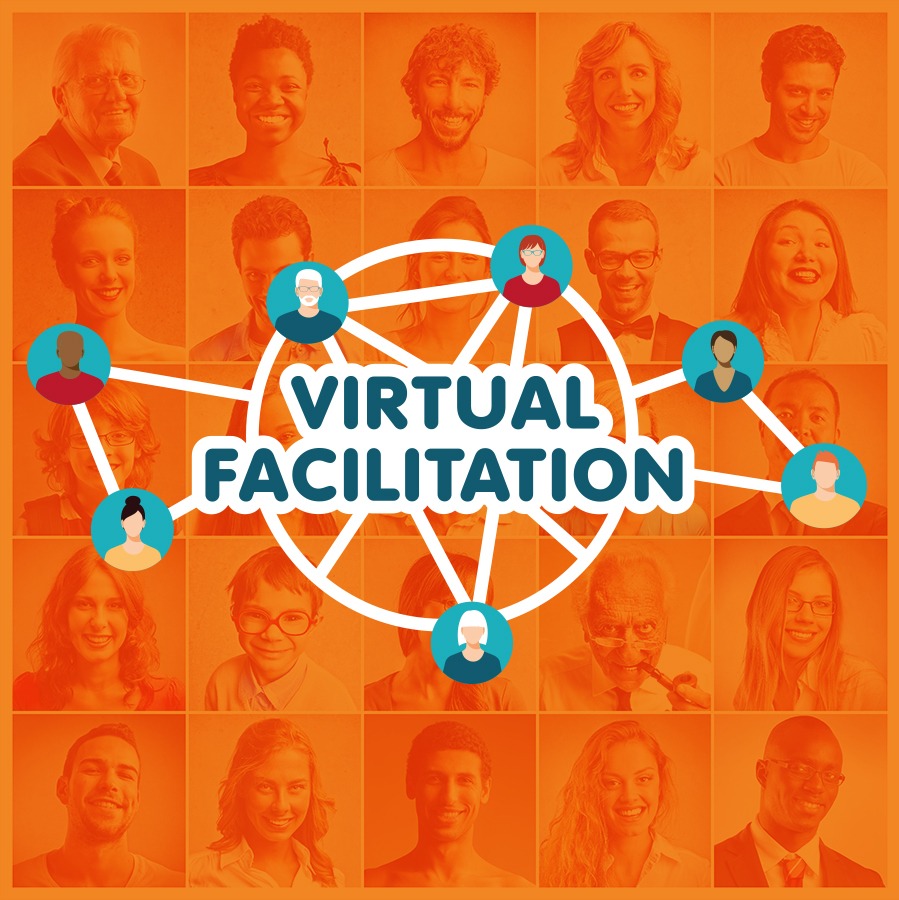Membership Engagement - Keeping People Connected

Membership engagement is central to an association, and that member experience is at a crossroads. Many associations were already online, but COVID-19 has brought all other organisations as well. Associations who used their events as the rhythm of their year, are now on high speed with weekly global webinars rather than annual regional conferences. Can we keep up? Do we want to? Should we change? Jeffer London speaks with the expert in online facilitation, Héctor Villarreal Lozoya, about moving associations online.


Jeffer London (left side): How has COVID-19 impacted your association?
Héctor Villarreal Lozoya (right side): The first big shock was postponing our global conference to 2021, but that was just the beginning. We are an association of facilitators, so working with groups defines our profession. Suddenly, members lost 20-100% of their work - not only putting membership fees at risk, but their livelihood and our entire relevance as the International Association of Facilitators. Our minds were busy setting up resources to help people migrate their facilitation online, while our hearts were occupied hosting group forums to deal with the trauma and transition.
JL: How are you approaching events now?
HVL: The frequency of virtual facilitated events skyrocketed by our association and by our members. We play a connector role, making us a remedy for social distancing. We are mostly a traditional organisation, many of our member’s lack deep remote facilitation skills and the technology changes have been exponential, so we are educating ourselves and our clients, while supporting other organisations to make connections virtually. Back-to-school is the typical re-start of the event season, yet we see many are already tired of Zoom calls. I think people are realising that online sessions actually take more time to prepare and that we still need spectacular events to offset all the average unengaging video conference calls.
JL: Where do facilitation experts go to learn?
HVL: Mostly from one another, connecting with others. Each of our annual regional conferences drew hundreds of participants. People travelled to connect and learn. As local events went online, regional boundaries dissolved. For example, Facilitation Week, our October celebration, had more than 150 local events last year. This year it’s an online global phenomena that individuals everywhere can lead or participate in. The reach has grown and people go to the highest quality events, regardless of distance.
JL: What more can you tell us about Facilitation Week?
HVL: There will be keynotes, collaboration platforms, hundreds of events on everything from group work to mindfulness and participatory practices to leadership. As sponsorship and volunteerism has gone up, most sessions are free. You can list your facilitated events there too, or just tweet them with #FacWeek. A favourite part is the facilitation impact award ceremony, an online gala to celebrate the people who have made an outstanding impact through facilitation. There’s much to learn for association leaders, as these projects showcase how facilitation transforms organisations and communities. You can preview some of the awardees in the #facilitationhasimpact films.
JL: Are the reasons to have a face-to-face conference still valid?
HVL: That’s a great question. At the end of the day, events are more than a roster of speakers and keynotes. A conference, either remote or face-to-face, is an experience. Participants want to be wowed, they want to learn, they want to connect. I believe face-to-face conferences will have to differentiate and ask themselves, what experience can we provide that an online conference can’t? Virtual conferences have very interesting advantages, low carbon footprint, more inclusion and farther reach, less logistical costs among others. I think face-to-face conferences will continue to make themselves relevant, but we can expect a very interesting reinvention process.
JL: How do you see the conference experience changing?
HVL: It has been changing already for quite some time. Paperless conferences are common. We have the whole programme and ticket in the palm of our hand. Conference app platforms have enhanced the event experience. Participants start engaging much sooner than before. Once you register the app allows you to interact and connect with your colleagues, select your sessions, rate them, and keep in touch after. Events themselves are also changing, big keynotes still play a big part and are crowd gatherers, but the new generations expect more intimate and transformative experiences, having contact with the experts is something participants look forward to. Traditional conference participants may decide not to travel again after experiencing reasonably decent online conferences. Events will become hybrid propositions, with a big portion of their value delivery in a digital format. They will become a year round affair, not only something only in June.
JL: Advice for making spectacular online events?
HVL: The wow effect is often from polished media, like TED talks or the streaming of Cirque du Soleil. That’s hard to compete with, but it is far from the reality of most groups' issues, meetings, or capabilities. Most people at work need a decision, an action plan, a result. Sometimes, just getting everyone to agree is spectacular! The power of facilitation is in the alignment, engagement and momentum it builds. There’s a lot of experimentation now – holographic events, virtual reality, RunTheWorld, Hopin – not to mention upgrades of MS Teams, Webex and others as they play catch-up with Zoom. Going forward, I think we will see the gimmicks fade and an expectation that we can all create quality online events. In the end a great online event is the result of human connection, just like when we are face-to-face. People need to connect and feel part of a tribe. Technology is an enabler, but the magic is in the facilitation. As facilitators, we know we have to be #betterthannetflix if we want to compete for people’s screen time.
JL: How is this re-shaping your organisation’s strategy and structure?
HVL: Although I’m no longer an active board member, I think the impact will be long lasting. It hasn’t only accelerated our virtual offerings, it’s made us rethink our role. The IAF sets the standard for facilitation, but those standards are shifting. Our members have had to become more agile and we need to do the same. As facilitators, we love asking revealing questions. What do our members need now? How can the association be indispensable? Has our target member shifted? What could the membership experience look like? Where will our future revenue come from? How can we be more relevant or more useful? We are still working on the answers, but what is clear is the world wants to know how to best facilitate progress, and we are re-shaping the way we host that conversation.
JL: How do you see the membership experience changing?
HVL: Our members look for three big things: community, credentials, and learning. Going virtual transforms each of these. Physical events were our lifeblood as they delivered members what they wanted and kept us afloat. Our members now have the option to be online with us non-stop, yet some are more isolated. It is up to the member to get involved. We have all kinds of special interest groups and forums, most of which are initiatives of the members themselves. So we try to entice and invite involvement and we are able to bring more to more people, if they choose to tune in. Keynotes are streamed to home, collaboration is online, content is at the end of a keyboard. There is a sad nostalgic need for a hug among some, but I think we offered hope to many who needed a community and helped them apply their talents online.
JL: Is there hope in technology?
HVL: I’ve been a technology aficionado since 1985, when my dad brought home an IBM XT Turbo with a green screen. Tech possabilities excite me. Well implemented technology, working alongside human connection, accelerates transformation exponentially. The learnings of the crisis are already getting integrated into engagement strategies. Future face-to-face will be better thanks to our digital capacity. I see this in the people I train and mentor: they are better off and make a bigger impact, which gives me hope. In the end, it’s not about technology or the event, it is about the connection.
Héctor is the former Director of Conferences and Events at the International Association of Facilitators (IAF). Check out his services at proyectum.com and virtualfacilitation. com. Jeffer is a facilitator at the Center for Creative Leadership (CCL®) For insights into the facilitation of engagement, see Jeffer’s blog about #stimulatingconversation at jeffer-london.com.
 International Association of Facilitators
International Association of Facilitators
iaf-world.org/virtualfacilitation
Virtual facilitation resources, events and community support facilitators. Tools and techniques, as well as people who can help you use them.
Meeting Professionals International
www.mpi.org/tools/coronavirus Updates, education and whitepapers on designing events in COVID-19 times. Includes podcasts and recorded events, as well as all the MPI resources.
Facilitation Week
#FacWeek, facweek.org
19-25 October with platform open
into November 2020. A participatory experience that inspires synergy and celebrates the act of group facilitation.
Other Articles
About Us
Supported by the Union of International Associations (UIA), the International Association of Professional Congress Organisers (IAPCO) and the Interel Group, the global public affairs and association management consultancy, Headquarters Magazines serve the needs of international associations organising worldwide congresses.















